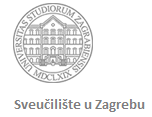Home » Dodiplomski – STARI SUSTAV-i ispitni rokovi
Category Archives: Dodiplomski – STARI SUSTAV-i ispitni rokovi
Ispitni rokovi: stari sustav
RASPORED ISPITNIH ROKOVA ZA STUDENTE PREDBOLONJSKOG PROGRAMA ANGLISTIKE ____________________________________________________________________________________________________ – JEZIČNI KOLEGIJI Varijante engleskog jezika: 13. lipnja (17.30h, A 105), 20. lipnja (14h, D VI) i 27. lipnja (17.30h, A 105); 5. rujna (17.30h, A 105), 12. rujna (14h, D VI) i 19. rujna (17.30h, A 105); dodatni rok – 6. ožujka, 3. travnja i […]
Ispitni rokovi: stari sustav 2015/16.
RASPORED ISPITNIH ROKOVA ZA STUDENTE PREDBOLONJSKOG PROGRAMA ANGLISTIKE u akad. god. 2015/2016.____________________________________________________________________________________________________ – JEZIČNI KOLEGIJI – ispitni termini izvan propisanih redovnih rokova (travanj i svibanj 2016.) – ispitni termini izvan propisanih redovnih rokova (prosinac 2015.) Semantika engleskog jezika, Kognitivna lingvistika, Kulture VB i Povijest engleskog jezika: dan sat dvorana dan sat dvorana dan sat […]
Izvanredni ispitni rokovi iz jezičnih predmeta 2014/15.
IZVANREDNI TERMINI ISPITA 2014/2015. (predbolonjski, preddiplomski i diplomski jezični kolegiji) IZVANREDNI ISPITNI ROKOVI – pratite i obavijesti na Oglasnoj ploči 20. TRAVNJA U 14.45 SATI U A-216, prijave u ISVU ili mejlom na mgrubisic@ffzg.hr – stari program – Semantika, Kognitivna lingvistika, Sintaksa, Kultura i civilizacija Velike Britanije, Povijest engleskog jezika, Teorija prevođenja – bolonjski program […]
Ispitni rokovi: stari sustav 2013/14.-ARHIVA
RASPORED ISPITNIH ROKOVA ZA STUDENTE PREDBOLONJSKOG PROGRAMA ANGLISTIKE u akad. god. 2013/2014.____________________________________________________________________________________________________ ° Neoklasicizam i romantizam – Ispiti se održavaju prema dogovoru s prof. Ciglar-Žanić.° Viktorijanska književnost (prof. Jukić Gregurić, prof. Knežević) – Ispit se održava u vrijeme konzultacija po dogovoru s profesorima.° Groteska u britanskoj i američkoj književnosti – ispiti se održavaju u dogovoru […]
Ispitni rokovi: stari sustav 2014/15.
RASPORED ISPITNIH ROKOVA ZA STUDENTE PREDBOLONJSKOG PROGRAMA ANGLISTIKE u akad. god. 2014/2015.____________________________________________________________________________________________________ ° Neoklasicizam i romantizam – Ispiti se održavaju prema dogovoru s prof. Ciglar-Žanić.° Viktorijanska književnost (prof. Jukić Gregurić, prof. Knežević) – Ispit se održava u vrijeme konzultacija po dogovoru s profesorima.° Groteska u britanskoj i američkoj književnosti – ispiti se održavaju u dogovoru […]
Američka književnost – diplomski ispit (opis)
DIPLOMA EXAMINATION IN AMERICAN LITERATURE(study guide and reading list)__________________________________________________________________________________________________ I. General guide A – General BackgroundB – Writers and Books : The Reading ListC – Textbooks and Study Materials II. Reading List Studenti su dužni proučiti sve upute koje se nalaze pod General Guide prije nego počnu spremati ispit. I. General guide A. […]
Četvrta godina-opis kolegija (i diplomski)
Course Description – 4th YEAR OF STUDY Prerequisites for enrolling in the fourth year of study: English language III British culture and civilization and/or American society Syntax (word classes and sentence) SHAKESPEARE ECTS Credits: PED 2 (half TEFL); PED 1,5 (full TEFL); DAD 2; PEJ 2; DAJ 3,5 Language: English Duration: VII and VIII semester […]
Treća godina-opis kolegija
Course Description – 3rd YEAR OF STUDY Prerequisites for enrolling in the third year of study: English language II Semantics English Neo-Classicism and Romanticism Victorian literature MODERN AMERICAN FICTION ECTS Credits: PED 2,5; DAD 2; PEJ 3; DAJ 3 Language: English Duration: V and VI semester Status: elective Course type: seminar Prerequisites: completed requirements for […]
Druga godina-opis kolegija (i izborni)
COURSE DESCRIPTION – 2nd YEAR OF STUDY Prerequisites for enrolling in the second year of study: English language I Introduction to the linguistic study of English and Phonetics and Phonology Introduction to the study of English literature ENGLISH LANGUAGE II ECTS Credits: PED 2; DAD 1,5; PEJ 3; DAJ 4 Language: English Duration: III and […]
Prva godina-opis kolegija
COURSE DESCRIPTION – 1st YEAR OF STUDY ENGLISH LANGUAGE I ECTS Credits*: PED 4; DAD 5; PEJ 7,5; DAJ 9 Language: English Duration: I and II semester Status: mandatory Course type: practical language exercises, tutorials Prerequisites: Regular attendence is required in order to take the exam. Examination: In order to take the written and oral […]
Dodiplomski (stari sustav) – Program studija
ODSJEK ZA ANGLISTIKUprogram studija anglistike – VODIČ KROZ STUDIJ 2004-2005 Naziv studija: studij engleskog jezika i književnosti / studij anglistikeDvopredmetni i/ili jednopredmetni studij: dvopredmetni studijZvanje (zvanja) koje se stječe: profesor engleskog jezika i književnosti / diplomirani anglist ______________________________________________________________________________________ PRVA GODINA STUDIJA OBAVEZNI I. GOD. Zimski Ljetni […]



